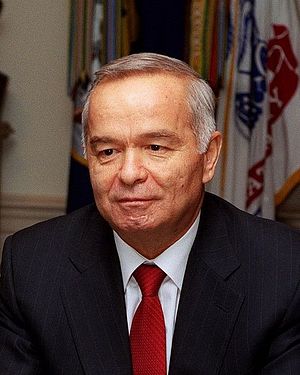Every time Uzbekistan’s President Islam Karimov appears in public, official media outlets meticulously report his every move. Media is tightly controlled in Uzbekistan so most of what really happens in the upper echelons of government is left to the imagination. At the end of January, the People’s Movement of Uzbekistan posted on its website information allegedly obtained from the Uzbek president’s inner circle: Karimov had fallen into a coma. The Central Asian leader is said to have fallen victim to his own overconfidence, attending a lavish dinner despite his doctor’s recommendations. Irrespective of the truth of the rumor, the precarious health of the aging president is a growing concern for Uzbekistan’s elite.
With the president out of public sight for two weeks, these rumors seem to flourish. Experts do not readily buy into them, especially when locals do not report tensions in the streets. The death of the leader would be expected to prompt a reaction from the military, which would show signs of tension. Still, 77-year-old Karimov is out of sight. The country is also in the middle of a presidential campaign that will lead to his “re-election” in late March. Of course, the outcome of the vote is preordained. Other candidates lent their names only to fill in space on the ballots.
The press in neighboring countries were quick to report the latest rumors, something that had not happened with earlier claims. A few days passed and an official news site reported Karimov at an official meeting on February 6. The Moscow-based Fergananews.com double checked, and discovered that the meeting never took place. The piece confirming Karimov’s wellbeing was quickly deleted from UzDaily, but not from Kazakhstani outlets. The clumsy reaction to the rumors is telling; this time, it might be more serious.
Claims that Karimov has died are frequent. Hopeful opposition parties lend their weight to any rumor. A similar situation occurred less than two years ago, when Karimov disappeared from public sight for the month of March, just after the celebration of the Navro’z spring festival. In 2003, allegations were even more creative, as the president was rumored to be a double. This latest rumor comes at a moment of dire economic crisis for the region, however, and follows a recent visit by Russian President Vladimir Putin during which he forgave Uzbekistan’s debt.
The Uzbek military has been stepping in both to protect the president and to ensure that the highest ranks have a say in the succession. The president’s eldest daughter, Gulnara Karimova, has been forcibly kept out of politics and there is little chance of her stepping in, should her father actually be dead. A managed military transition is the most likely scenario for any succession, but again, are we there yet? Is this the turning point for Uzbekistan that many hoped to see? As always, the reality when it comes to Karimov and his country is uncertain. In a recent interview, SOAS scholar Alisher Ilkhamov said: “you can expect all kinds of surprises from this formal and informal system.”

































